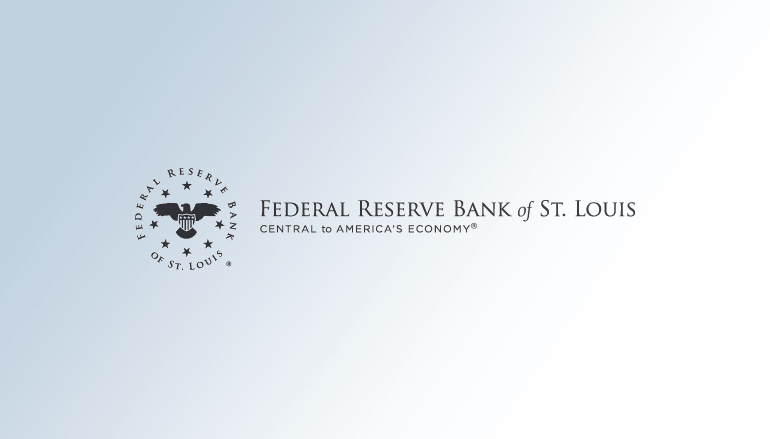
David Andolfatto, who is the Vice President of Research at the Federal Reserve Bank of St. Louis, recently let it be known that bitcoin may work as a store of value. The comments related to this topic came during a recent interview on the Epicenter Bitcoin podcast.
In the past, Andolfatto has written on the concept of a Fedcoin, which would be a fork of Bitcoin that is redeemable at a one-to-one ratio for a government’s fiat currency. It appears that Andolfatto sees value in Bitcoin and a possible Fedcoin, and he also understands the concept of bitcoin as the new, digital gold.
Why bitcoin works as a store of value
Although bitcoin has been a volatile asset over the short term, the long-term picture still shows a large amount of growth in the price since 2010. Bitcoin is far away from its $1200 late-2013 high, but the current price level of around $240 is still much higher than the exchange rate in 2011 or 2012. Andolfatto shared his views on bitcoin’s long-term vs short-term use as a store of value in his recent interview:
“I wouldn’t go so far as to say that bitcoin is not a good store of value. I think that it could potentially be a good long-run store of value, so I make a distinction — and I think a lot of monetary theorists do as well — on the short-run rate of return versus the long-run rate of return of an asset. Of course, it’s desireable — if you could — to have [a] high long-run rate of return and a high, stable short-run rate of return, but life is full of tradeoffs.”
Andolfatto then went on to explain whether or not it would make sense to have bitcoin in one’s portfolio as a long-term store of value:
“My view would be more of — yeah, as a store of value, I mean if people want to put aside some bitcoin in their wealth portfolios (you know, not too much of it) that it might perform in similar ways to gold or something like that. That would be OK. There is a fixed supply of the stuff, and you could imagine with demand growing that, over the long run, it might be a good store or decent store of value.”
The problems with bitcoin
Although Andolfatto agrees with the possibility of bitcoin being a good store of value over the long term, he believes the short-term fluctuations in the price could be an issue for the digital commodity’s usefulness as money. He explained:
“To be a good money — a good money needs more than just [the ability to be a good store of value]. It’s good if it has a good long-run store of value, but also what’s important is that it has a good short-run rate of return. That, in other words, its purchasing power doesn’t fluctuate too dramatically in the short run. Or even if it does remain stable for awhile, that it isn’t subject to wild swings in its purchasing power.”
After discussing the issues with bitcoin in terms of its use as a form of money at a micro level, Andolfatto then began to describe possible issues that could arise if everyone in the world (or just one country) decided to adopt bitcoin as money:
“I think it’s a property of these types of monetary policies — like the gold standard and also bitcoin — that in times of high demand for money (like during a financial crisis) you see these very large increases in the demand for money that if the supply of money is fixed that what’s naturally going to happen is that the purchasing power of that money is just going to skyrocket, which is to say it will create a huge deflationary event.”
Digital gold vs digital fiat
In reality, the Fedcoin vs Bitcoin debate is quite similar to the fiat vs gold debate. We are simply bringing this dispute into the digital world. There are those who believe economic crises should be met with money printing, while others (such as the Austrians) see these events as healthy readjustments of the economy. Andolfatto explained his side of the argument during the Epicenter Bitcoin interview:
“We know that these unexpected deflationary events are harmful because most people organize their payments in terms of nominal debt contracts. You pay the rent in so many dollars per month, you pay your employees a certain amount of wage. If firms see the product prices plummeting in a big deflation, they’re going to have difficulty meeting these nominal obligations. They’re going to have to layoff workers and renege on their debts. This is why the bitcoin monetary policy is not necessarily a good monetary policy relative to a well-design, elastic monetary policy that would increase the supply of money during a crisis to alleviate the pressure that there is on the demand for the money. And in doing so, you’re able to smooth out the price-level effect and avoid the worst consequences of these unexpected deflationary events.”
There are plenty of individuals who disagree with this assessment, and there are also many people who simply do not wish to be susceptible to a politically-manipulated monetary policy. For this reason, it’s likely that — much like gold and fiat currency — Fedcoin and Bitcoin could coexist for an extended period of time.

